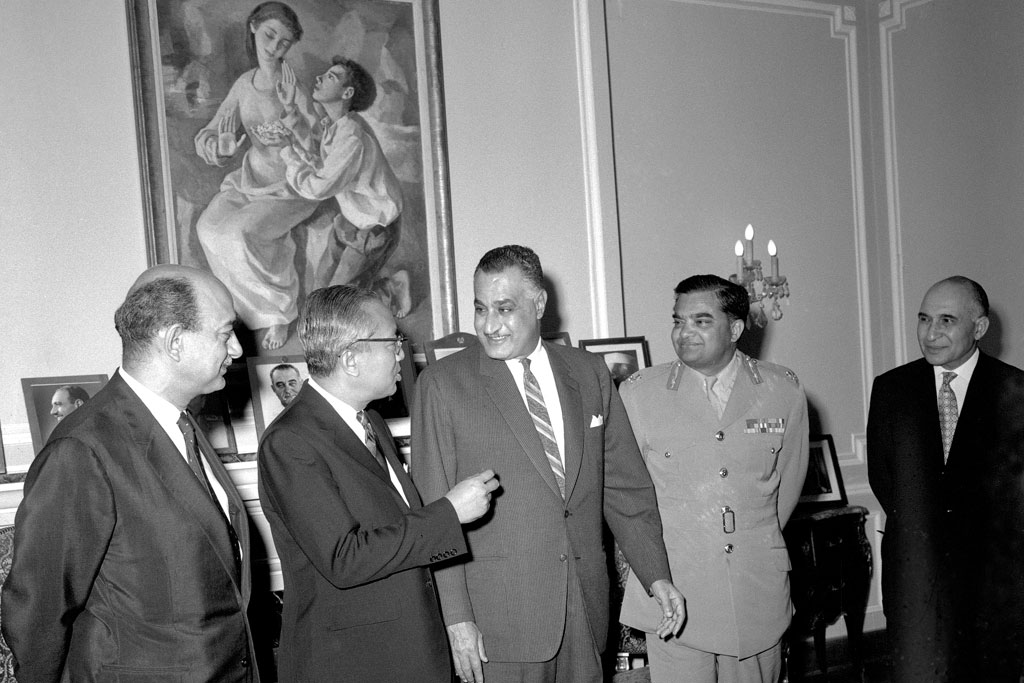Egypt Wants Sinai Peacekeepers to Leave

May 16, 1967
Egyptian President Gamal Abdel Nasser requests that the United Nations withdraw its peacekeeping troops from the Sinai, clearing an obstacle to war between Israel and its Arab neighbors. The Six-Day War begins 20 days later.
The U.N. Emergency Force was deployed after the Suez crisis in 1956 to deter hostilities by acting as a buffer between Israel and Egypt. But because UNEF operates on Egyptian territory, it requires Egypt’s permission to remain, so Nasser’s request has the impact of an order and results in a rapid U.N. withdrawal. U.N. Secretary-General U Thant defends the UNEF pullout based on the consent issue and on the danger peacekeepers would face by remaining in what appears likely to become an active war zone.
Nasser has received false reports from the Soviet Union that Israel is moving troops towards the Syrian border, and his call for UNEF to evacuate from the Sinai is an effort to gain an advantageous position in case of an attack by Israel. Egyptian forces take positions at the Straits of Tiran and block maritime access for Israel, a development that Israel sees as an act of war. Nasser places Egypt on a war footing, cranks up his anti-Israel rhetoric and moves troops to the border, leading Israel to mobilize its military reserves.
Fearing an imminent attack from Egypt and Syria, Israel strikes first by air June 5 and defeats Egypt, Syria and Jordan by June 10 to triple its land area.